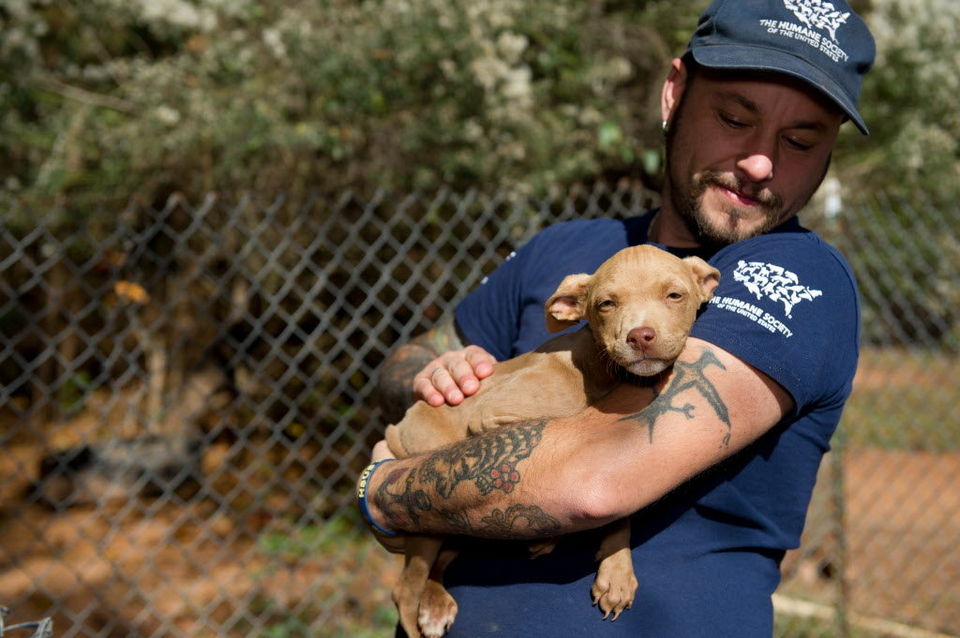

MONTGOMERY, Alabama (AP) — A federal judge in Alabama ordered participants in a high-stakes dogfighting operation to pay a record $2 million in restitution for their animals’ care.
U.S. District Judge Keith Watkins imposed the payments Thursday and Friday on people who pleaded guilty in the multi-state case.
Officials with the American Society for the Prevention of Cruelty to Animals and the Humane Society of the United States said it was the largest restitution amount ever ordered by federal judge in a dogfighting case. It came after the judge earlier imposed the longest sentence ever in a federal dogfighting case.
“I hope it sends a message that not only will you be punished, you will have to pay,” federal prosecutor Clark Morris said.
The restitution will go to the two animal welfare organizations, which provided care for the 451 dogs seized in the case. But even if all the money is paid, which they doubt, it won’t come close to covering the $5.5 million they reported spending on the dogs’ care, including veterinary treatments, housing, food, and retraining to try to make them adoptable pets. The operation involved more than 700 people who set up temporary rescue centers at the National Peanut Festival fairgrounds in Dothan, Alabama, and a warehouse in Gainesville, Florida.
Tim Rickey, vice president of field operations for the ASPCA, said some of the defendants are on payment plans that would require them to be 300 years old to pay the full amount, but he said holding them financially responsible is important to people who donated money to pay for the care of malnourished, injured dogs.
Federal agents raided locations in Alabama, Georgia and Mississippi in August 2013 and seized 367 dogs, nearly all pit bulls. Many were found underfed and attached to heavy chains. Several of the dogs were pregnant, and animal welfare groups ended up with 451 dogs by the time the puppies arrived. Officials said Friday more than half the dogs have been adopted or being prepared for adoption, but the remainder died from health problems or had to be euthanized because they were too aggressive toward humans.
Cooperating witnesses said Donnie Anderson staged fights near Auburn, Alabama, that usually attracted 100 to 300 people who paid $100 to $150 each to attend. They brought large sums of cash and $100,000 or more was often bet on a single fight.
Anderson, described by the judge as “the kingpin of this conspiracy,’ was sentenced in November to eight years in prison. That’s four times longer than the sentence NFL quarterback Michael Vick got in his 2007 dogfighting case.
On Friday, Anderson worked out an agreement with federal prosecutors to pay $580,000 in restitution for the care of his 147 dogs, and the judge approved it. The judge said in an earlier hearing that 78 of Anderson’s dogs either died from injuries or had to be euthanized.
The judge ordered Ricky Van Lee of Biloxi, Miss., to pay $627,389 for the care of his 68 dogs. Lee is serving four years in prison.
Michael Martin of Auburn must pay $458,752 for the care of his 55 dogs. He has a five-year sentence.
The judge ordered four others to pay smaller amounts that pushed the total to $1,987,411. One defendant, who had two dogs seized, became ill in court and his restitution case had to be postponed. Prosecutors are recommending $17,840 in his case.
The amounts vary because some defendants’ dogs were in care longer than others.
